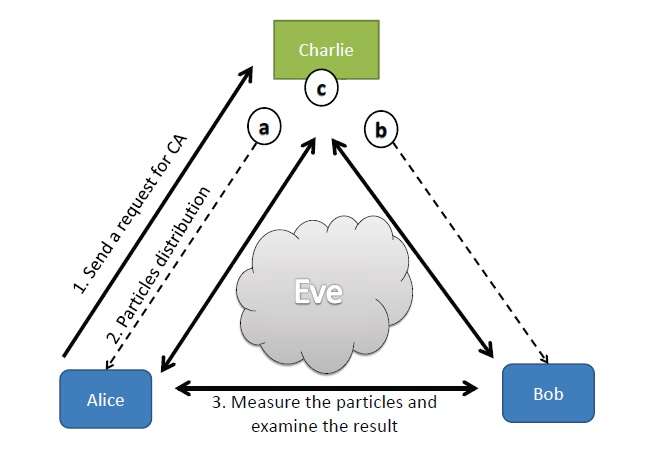June 15, 2015 report
Best of Last Week—New violations of local realism, a computer that runs on water droplets and nuts warding off diseases

(Phys.org)—It was an interesting week for physics as a combined team of researchers from China and Singapore demonstrated new violations of local realism—they have shown that all mixed entangled states that conform to a particular steering property will violate local realism. Also a team with the Federal University of Minas Gerais in Brazil showed that the Quantum Cheshire Cat effect may be explained by standard quantum mechanics, which questions the possibility of a particle being separated from its properties. And Joseph Fitzsimons and Carlos Pérez-Delgado published a paper describing a blind quantum computing method that surpasses the efficiency 'limit'—overcoming what has been considered to be a natural and universal limit on the efficiency of a particular quantum cryptography task.
Also, a team at MIT found that at near absolute zero temperatures, molecules may start to exhibit exotic states of matter—they chilled molecules in a gas of sodium potassium to a temperature of just 500 nanokelvins, which is over a million times colder than outer space, and found the molecules were more stable, lived longer and were more resistant to reactive collisions.
In other news, a team of engineers at Stanford developed a computer that operates on water droplets—it is a synchronous machine that operates using the unique physics involved with moving water droplets. And another team with the University of California demonstrated a way of counting people with WiFi—when those people are not even carrying WiFi enabled devices. Also, a team working at Case Western Reserve and UT Southwestern Medical Center announced a new drug that triggers tissue regeneration—called "SW033291," it promotes faster regrowth and healing of damaged tissues. And in an international effort, a team of researchers has shown that injectable electronics hold promise for basic neuroscience and treatment of neuro-degenerative diseases—they have developed a method for creating nano-sized scaffolds that can be injected using a simple syringe. And a team of researchers has banded together to develop a state-by-state plan for converting the US to 100 percent clean, renewable energy by 2050.
And finally, if you are one of those people that likes gobbling hard-walled, edible kernel fruit while watching football, good news: A team of researchers has found that nuts and peanuts may protect against major causes of death. Conducted by the Netherlands Cohort Study, the research revealed a lowered risk of not only cardiovascular disease but also neurodegenerative and respiratory diseases, diabetes and cancer.
Journal information: Scientific Reports
© 2015 Phys.org





















